Issa M.S. Panahi received Ph.D. degrees in electrical engineering from the University of Colorado at Boulder, Boulder, Colorado. Dr. Panahi worked in industry and research centers for 18 years before joining the University of Texas at Dallas (UTD) in 2001 where he is now an associate professor of electrical engineering and also a research associate professor of Bioengineering departments.
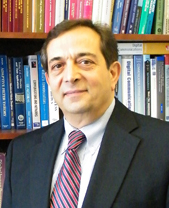
Dr. Panahi was a senior design engineer for a vision-controlled industrial robot, tape and disk drive systems at the Storage Technology Corp in Colorado, a Research Scientist at the Bellaire Research Center, Geophysical signal processing group, of Shell Oil Development Company in Houston, Texas.
In 1991, he joined the digital signal processing (DSP) division of Texas Instruments Inc (TI) in Houston where he founded and directed the worldwide DSP Embedded Systems business unit and served as a chief DSP architecture, TI’s senior member of technical staff, worldwide application manager, chief technology officer (CTO), advance systems development manager, for the business unit until 2000. He was Wireless/OMAP application manager at TI in Dallas from 2000 to 2001. During his tenure at TI, Dr. Panahi directed a dedicated TI’s Corporate R&D team, managed multiple funded university research projects in the US and abroad, and a member of industrial advisory board in several universities.
Dr. Panahi is currently an associate professor of electrical engineering and also a research associate professor in the department of Bioengineering at UTD. He is founding director of the Statistical Signal Processing and UT-Acoustic Laboratories in the Erik Jonsson school of Engineering and Computer Science at UTD. His research areas include signal processing, audio/acoustic/speech signal processing for biomedical and commercial applications with emphasis on statistical and adaptive signal processing; active noise control, speech enhancement, psychoacoustics, signal detection & estimation, source separation, remote sensing, microphone/ loudspeaker arrays and beam-forming.
Dr. Panahi was founder and vice-chair of the IEEE-Dallas Chapter of Engineering in Medicine and Biology Society (EMBS) for 6 years. He has been vice-chair and chair of the IEEE-Dallas Chapter of Signal Processing Society since 2004. He received the 2005 and 2011 “Outstanding Service Award” from the IEEE-Section. He has been an associate editor, co-organizer, and session chairs of the annual international conferences of IEEE EMBS (EMBC). He was a member of organizing committee and chair of plenary sessions of the IEEE ICASSP2010. He organized tutorial workshops and chaired several invited sessions at international conferences such as APE, American Control Conference (ACC), International Federation of Automatic Control-World Congress (IFAC), and IEEE International Conference on Fuzzy Systems. Dr. Panahi holds a US patent and has authored/co-authored 5 books and over 194 technical articles, journals, and conference papers. His journal paper was recognized as the best paper of 2013 by the Electronics and Telecommunication Research Institute (ETRI) of S. Korea. He also received the “Certificate of Achievement – Award of Excellence for Distinguished Teaching Contribution” from The Erik Jonsson School of Engineering & Computer Science in 2014, and Certificate of Recognition for Inventive Contribution to The University of Texas at Dallas for 2012- 2013. He is a senior member of IEEE; Signal Processing Society, Engineering in Medicine and Biology Society (EMBS), and Acoustic Society of America (ASA).
Academic:
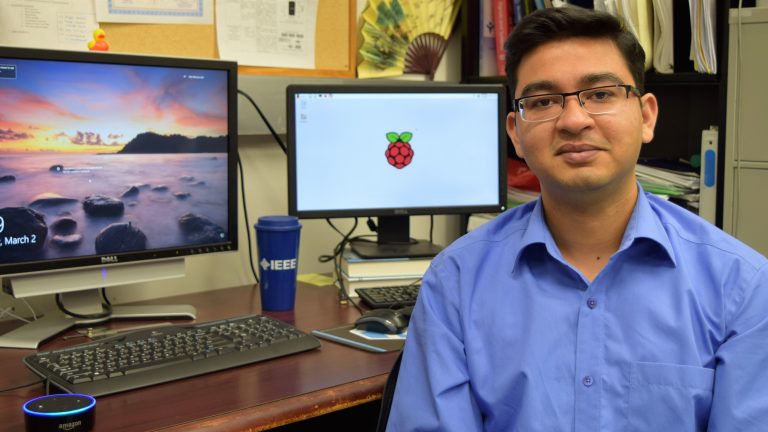
Anshuman Ganguly is currently pursuing his Ph.D. in Electrical Engineering at the Statistical Signal Processing Research Laboratory(SSPRL) at The University of Texas at Dallas(UTD), Richardson, TX. He received his M.S. (Thesis) in Electrical Engineering at UTD in 2014. His thesis was titled ‘Parallel Feedback Active Noise Control using Signal Decomposition Techniques’. He received the B.E. degree in Electronics & Telecommunications from Bhilai Institute of Technology Durg, C.G. India, in 2012. His current research interests are in Audio DSP including microphone arrays, source localization, beamforming, voice activity detection and active noise control. He has nine conference publications, one of which received the Bob Owens Best Student paper at IEEE SiPS 2016. He has previously worked at Bose Corp. as an Audio Engineering Intern. He is a Member of the Honor Society of Phi Kappa Phi and IEEE-UTD. He is also Student member IEEE Signal Processing Society (SPS). He has previously interned at Bose Corp. as an Audio Engineering Intern and Amazon Lab 126 as Research Scientist Intern. He will join Amazon Lab 126 in the Fall of 2018.
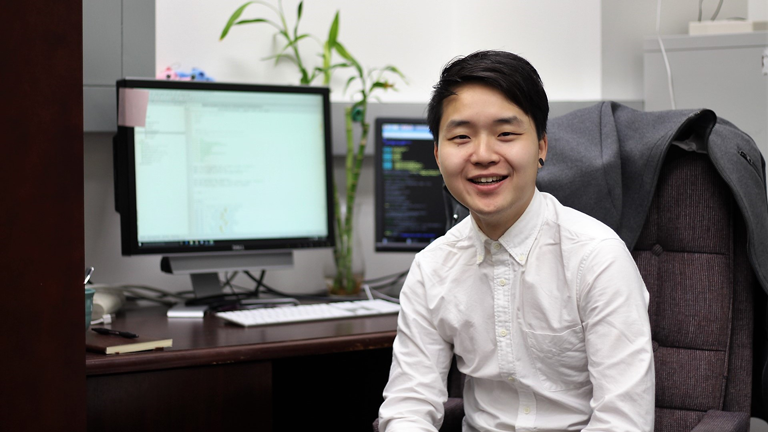
Yiya (Sherlock) Hao is currently pursuing his Ph.D. from Spring 2016. He received his M.S. in Telecommunications Engineering at UTD in 2015. He received his Bachelor of Science (B.S.), Telecommunications Engineering from Minzu University of China in 2013. His current research interests include Audio Compression, Speech Enhancement, Voice Active Detection, Microphone Array, Direction of Arrival and Audio Processing in Android. He has four publications and holds one Patent- ‘Methods of suppressing interference in communication’ From China Patent Office. Patent Number: 201120409477, Issued October 25, 2011. He will join Facebook Oculus in the summer 2017. He has previously worked as DSP Engineer at the Locomotor Control Systems Lat at UT Dallas(2014) and as DSP Engineer at Airside Logix (2015).
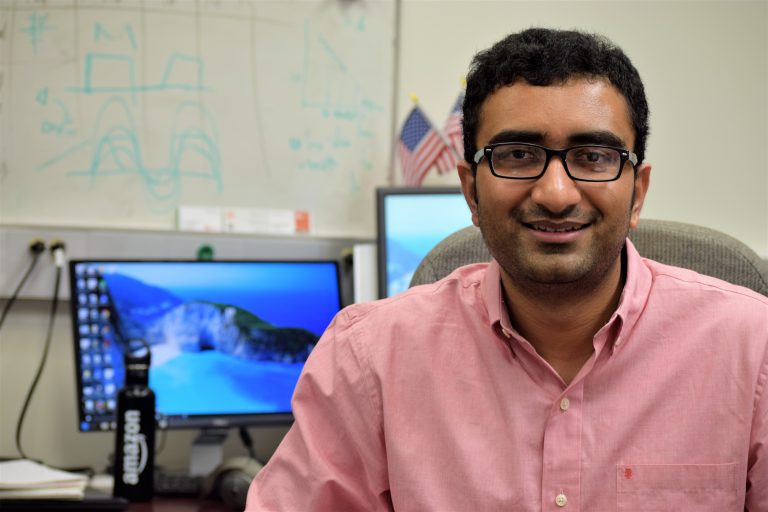
Chandan Karadagur Ananda Reddy completed his Bachelor of Engineering in Electronics and Communication at PES Institute of Technology Bangalore South campus in June 2012. He then worked as a Research Assistant in DSP labs for one year in the same institute. He then entered Master’s program in Electrical Engineering at UT Dallas in August 2013. He started working in Statistical Signal Processing Research Laboratory (SSPRL) from Jan 2014. His research includes single and dual microphone speech enhancement techniques, blind source separation and signal decomposition. He is working as a Teaching Assistant in Department the of Electrical Engineering at UTD from Fall 2014 semester. He worked as a DSP Research Intern in the company Zounds Hearing, where he developed Speech Enhancement algorithms for hearing aid devices. He has 5 conference papers during his research at SSPRL under the guidance of Dr. Issa Panahi
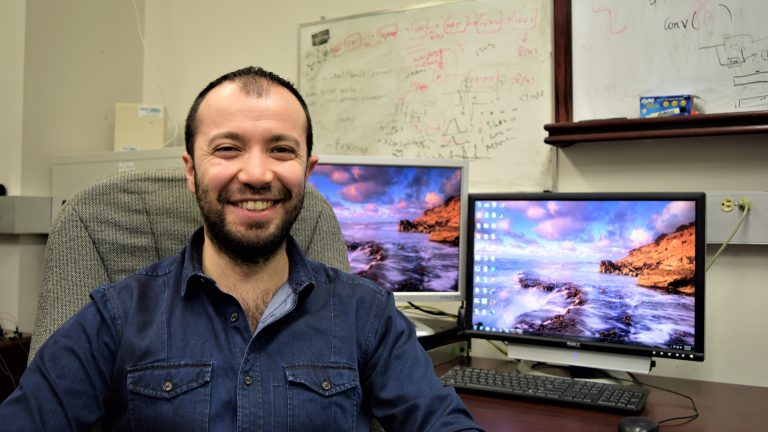
Abdullah Kucuk received his Bachelor of Engineering degree in Electronics Engineering from Kadir Has University in Istanbul, Turkey. He is pursuing his Ph.D. Degree in Statistical Signal Processing Laboratory at the University of Texas at Dallas. His research area includes Voice Activity Detection, Microphone Arrays, Direction of Arrival and real-time implementation of DSP algorithms on Android.
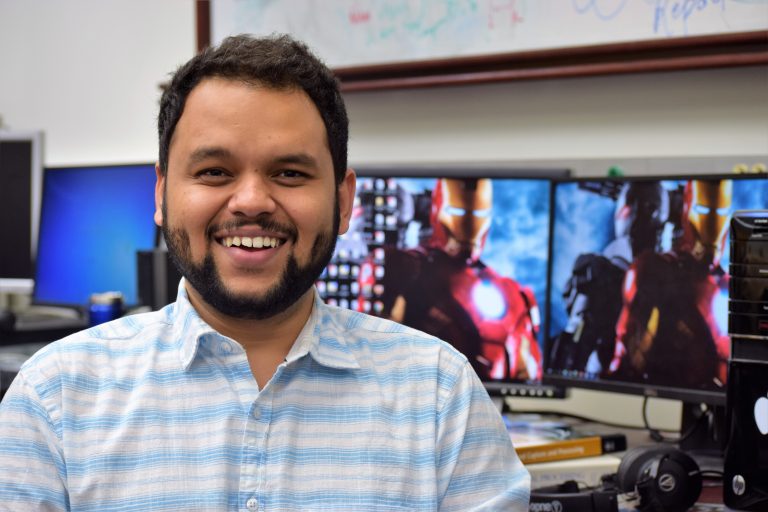
Parth Mishra received the B.S. degree in Electronics and Instrumentation from Rajiv Gandhi Proudyogiki Vishwavidyalaya, Bhopal, India in 2016 and currently pursuing his M.S. degree in Electrical Engineering from The University of Texas at Dallas. He joined Statistical Signal Processing Research Laboratory (SSPRL) at the University of Texas at Dallas in Fall’16. Currently, he is a student worker at SSPRL pursuing his thesis under Dr. Panahi. His Research Interests includes – Improving acoustic feedback path model estimation and cancellation in real time.
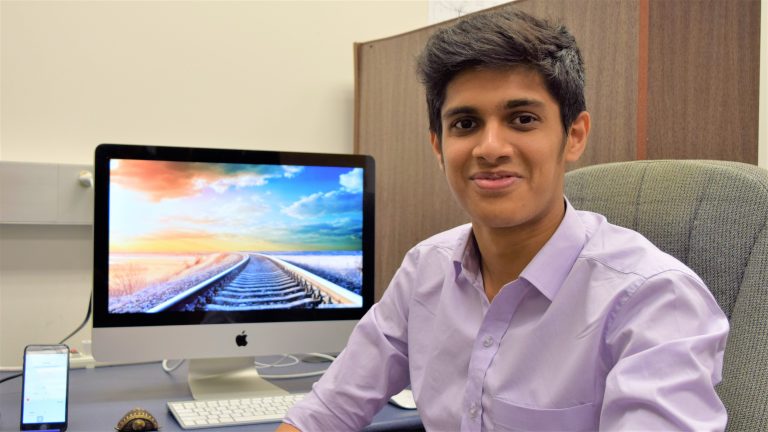
Nikhil Shankar is currently pursuing his Master’s (Thesis) program in Electrical Engineering at The University of Texas at Dallas, Richardson, TX. He completed his Bachelor of Engineering in Electronics and Communication at Sir M. Visvesvaraya Institue of Technology, Bengaluru, India, in 2016. He started working in Statistical Signal Processing Research Laboratory (SSPRL) from Sept 2016. His research includes single and dual microphone speech enhancement techniques, Real-time DSP, iOS. He has been a student worker in SSPRL from Jan 2017.
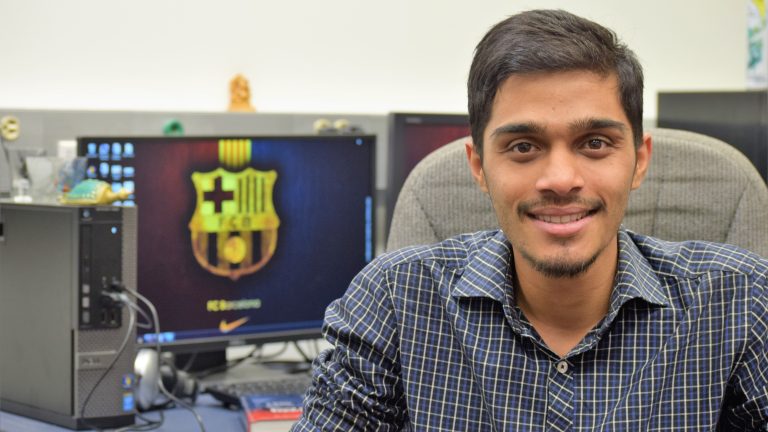
Gautam Shreedhar Bhat completed his Bachelor of Engineering in Electronics and Communication at Nitte Meenakshi Institute of technology Bangalore in June 2016. He is currently pursuing his Master’s (Thesis) degree at UTD and is a Ph.D. aspirant. He started working in Statistical Signal Processing Research Laboratory (SSPRL) from October 2016 and has been a student worker from January 2017. His current research interests include single and dual microphone Speech Enhancement, Blind Source Separation, Audio Compression and Microphone Arrays.
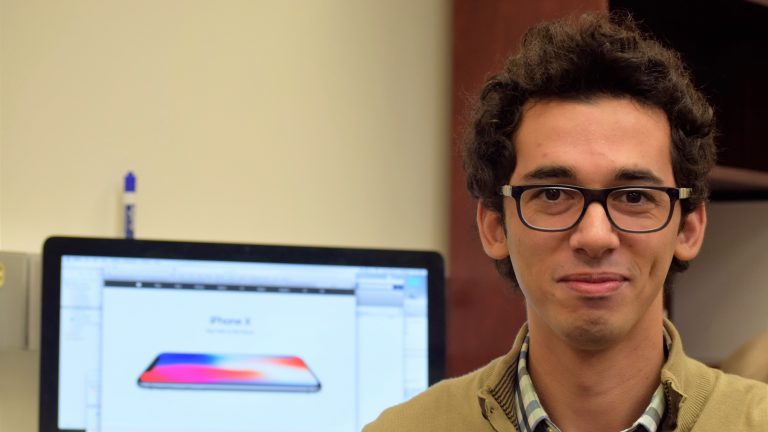
Serkan Tokgoz is currently pursuing his Master’s (Thesis) program in Electrical Engineering at The University of Texas at Dallas. He received his Bachelor of Engineering (B.E.) degree in Computer Engineering at Erciyes University in Kayseri, Turkey. He has started working at the Statistical Signal Processing Research Laboratory(SSPRL) from Spring 2017.
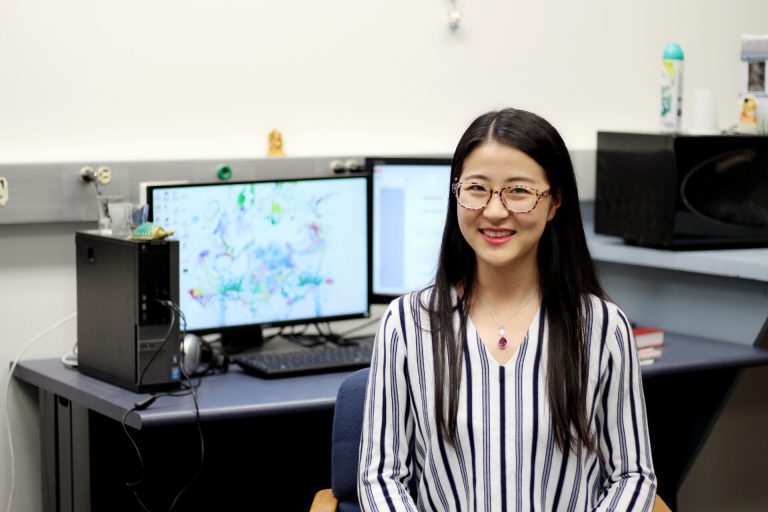
Ziyan Zou completed her Bachelor of Vehicle Engineering (Honor) at Tongji University, China in July 2016. She is currently pursuing her Master’s (Thesis) degree at UTD and is a Ph.D. aspirant. She started working in Statistical Signal Processing Research Laboratory (SSPRL) from June 2017 and has been a student worker from July 2017. Her current research interests include Dynamic Range Audio Compression, Microphone Array, and Beamforming.
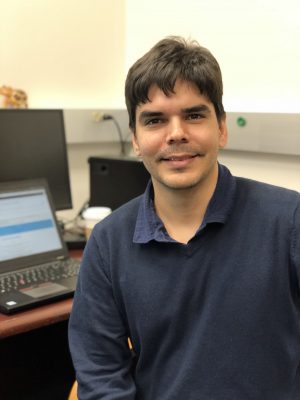
Holden Hernandez completed his Bachelor of Computer Science at The University of Texas Rio Grande Valley in July 2016. He is currently pursuing his Master’s degree at UTD in Traditional Computer Sciences. He started working in Statistical Signal Processing Research Laboratory (SSPRL) from January 2018. His current research interest includes efficient Audio and Speech transmission over Bluetooth/Wifi in mobile devices. He is interested in Chess.
Highly qualified research students may apply for Research Assistantship, Teaching Assistantship, or ECS Student Scholarship and receive financial support. Very attractive financial packages are available for well qualified students to pursue a Ph.D. at the SSPRL and UT-AL. Positions are available for students who have received (or about to receive) a M.S. and wish to continue towards a Ph.D. degree. Interested applicants should send a brief email to issa.panahi@utdallas.edu , including:
Due to volume of interest, we can only acknowledge qualified students who have read and followed the instructions on this web page. The following criteria are used in evaluating qualification of an applicant: Grades in key courses. At the B.S. level: all math courses, junior and senior-level systems-related courses. At the M.S. and Ph.D. level: Random Process(RP), Digital Signal Processing(DSP), acoustic signal processing, noise cancellation, speech enhancement, active noise control, detection and estimation, adaptive filtering. Quality of the educational institution, and rank in class, English language proficiency: written and spoken. Publication in IEEE and international journals and conferences is a big bonus. Post-doctoral position may be available in acoustical signal processing and biomedical applications. Desirable qualifications include a strong history of research and journal publications. Due to the source of funding, this position can only be available to domestic applicants (US citizens/permanent residents).